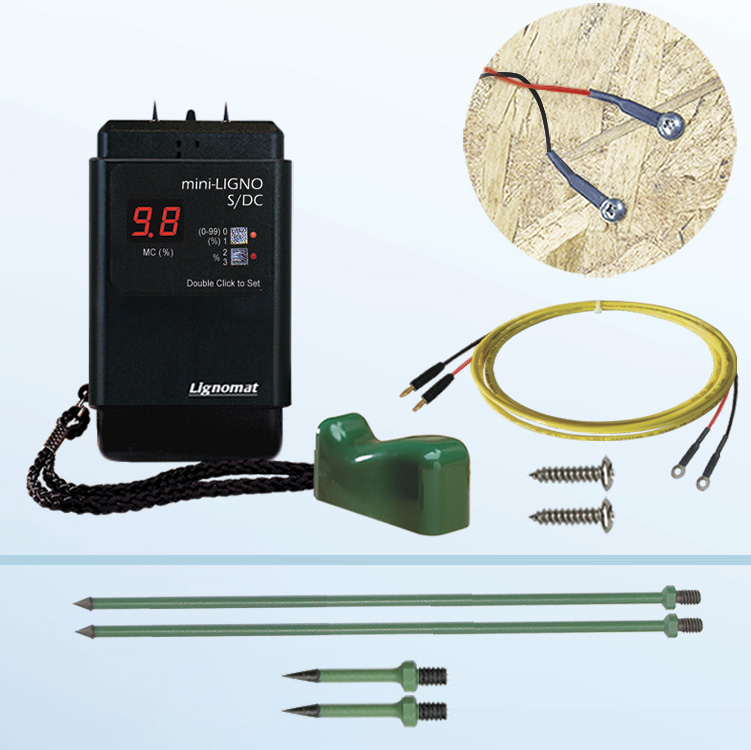The Ultimate Guide to Moisture Meters: A Comprehensive Overview and Just How They Can Conserve You Money
In the realm of structure maintenance, building, and various sectors, the value of precisely gauging dampness degrees can not be overemphasized. Dampness meters act as important tools in discovering and monitoring moisture web content in products, helping in preventing costly damages and ensuring the quality of items. Comprehending the nuances of different kinds of wetness meters, their applications, and the potential cost-saving advantages they use can be a game-changer for services and experts alike. Finding exactly how these tools can not only improve procedures but additionally add to financial cost savings is a trip worth getting started on.
Sorts Of Moisture Meters
Numerous kinds of moisture meters are offered for various applications in various sectors. One usual type is the pin-type moisture meter, which measures the electrical resistance in between 2 pins inserted into a product. This type is appropriate for timber, drywall, and other structure products. Pinless dampness meters, on the other hand, usage electro-magnetic sensing unit plates to scan a larger area without triggering damages to the product's surface. These meters are suitable for rapidly assessing moisture levels in big areas such as floorings and walls.
Infrared moisture meters gauge the thermal residential or commercial properties of a material to establish its dampness material non-invasively, making them helpful for applications where pin or pinless meters may not be appropriate. Comprehending the various kinds of wetness meters available can aid industries pick the most appropriate device for their specific moisture measurement demands.

Advantages of Making Use Of Moisture Meters

In addition, making use of wetness meters can result in boosted power effectiveness. By identifying areas with high dampness degrees, such as leakages or bad insulation, changes can be made to improve energy conservation and decrease utility expenses. In agricultural setups, dampness meters play an essential duty in maximizing plant returns by allowing farmers to check soil moisture levels and make notified irrigation choices. Overall, the benefits of making use of dampness meters extend throughout numerous industries, providing cost-efficient options and advertising far better high quality control practices.
Exactly How to Pick the Right Moisture Meter
Choosing the appropriate dampness meter entails considering crucial elements such as material compatibility, measurement array, and calibration precision. When selecting a dampness meter, it's important to ensure that the meter appropriates for the specific material you will certainly be screening. Different materials have differing electrical residential properties that can affect moisture readings, so picking a meter made for your product is important for exact results. Additionally, consider the measurement series of the moisture meter. Ensure that the meter can identify wetness levels within the variety required for your applications. Calibration accuracy is another important aspect to remember (Moisture Meter). Choose a wetness meter with dependable calibration to ensure consistent and exact analyses. Some meters might require routine calibration modifications, so comprehending the calibration procedure is necessary. By meticulously examining these elements, you can pick a wetness meter that satisfies your requirements and gives exact dampness measurements for your jobs.
Appropriate Strategies for Moisture Meter Usage
To ensure precise wetness analyses and make the most of the effectiveness of a wetness meter, employing appropriate methods is essential. When making use of a pin-type wetness meter, insert the pins or probes into the product being tested till they make full contact. By adhering to these appropriate click to read more methods, individuals can depend on like this their dampness meter to give credible wetness degrees, aiding in avoiding costly damage or ensuring quality in numerous applications.

Expense Financial Savings Via Moisture Meter Applications
How can the calculated usage of moisture meters lead to substantial price savings across various sectors? In the agriculture sector, wetness meters aid in determining the ideal time for gathering crops, avoiding over-drying or excess moisture that can impact the last item's top quality.

Furthermore, in the food processing sector, moisture meters are essential for keeping an eye on item quality and ensuring conformity with safety and security laws. By accurately measuring dampness material in food, makers can stop spoilage, maintain freshness, and lower waste, causing considerable expense savings. Overall, the strategic application home of wetness meters is an important financial investment that can cause significant price reductions and improved effectiveness throughout different sectors.
Conclusion
In conclusion, moisture meters are useful tools for identifying and determining moisture degrees in numerous products. By using the appropriate dampness meter and adhering to appropriate methods, customers can properly avoid expensive problems caused by excess dampness.
Wetness meters serve as important devices in spotting and checking moisture content in products, assisting in avoiding expensive problems and guaranteeing the high quality of products. Infrared dampness meters measure the thermal residential properties of a material to establish its wetness material non-invasively, making them beneficial for applications where pin or pinless meters may not be suitable.Moisture meters supply very useful advantages in precisely evaluating and monitoring wetness levels in varied products and environments. In agricultural settings, moisture meters play a vital function in enhancing crop yields by enabling farmers to check dirt dampness degrees and make informed watering choices.In final thought, dampness meters are useful devices for gauging and spotting moisture degrees in different materials.